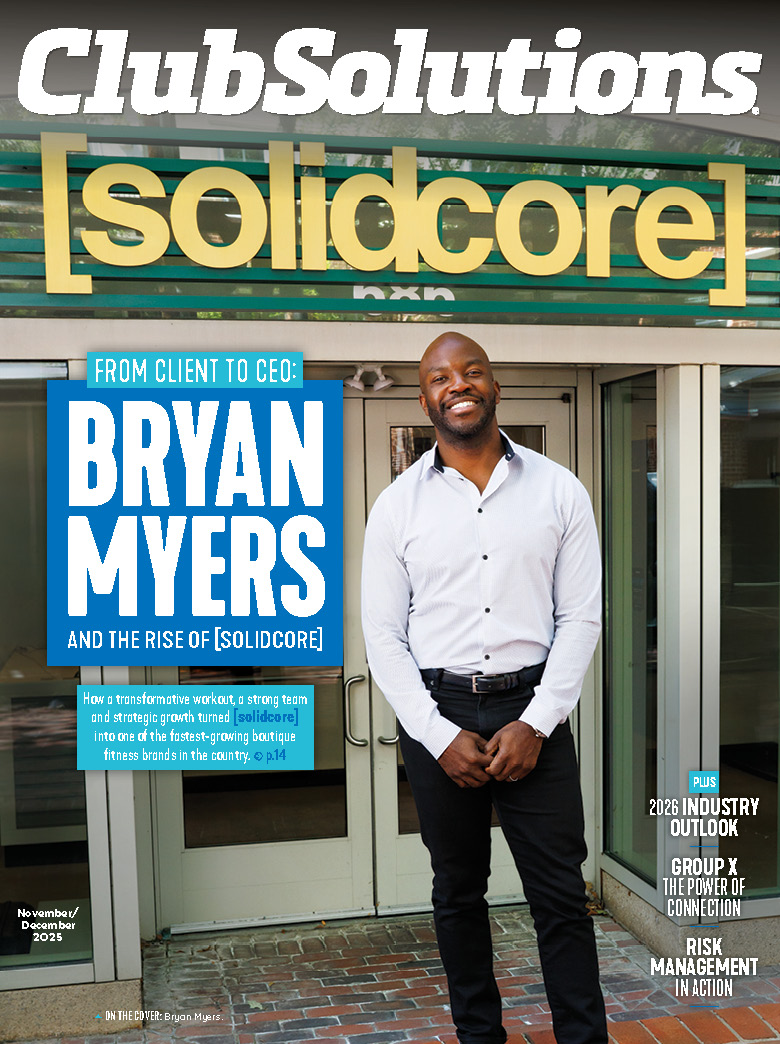Personal training is one of the fastest-growing areas of the health and fitness industry. That is, according to Josh Fly, the director of personal training at the Sports Center at Chelsea Piers in New York City. Certifications, he said, are also the easiest way for clubs to feel “confident” whether or not a personal trainer is qualified to train clients.
“Without certifications, there is no way to monitor personal trainer specifications, which can be dangerous,” Fly explained. “We want to know the content of what they’ve studied, and we know the value of what these certifications mean.”
When evaluating a trainer’s certifications, Fly and Chelsea Piers break certifications down into three categories.
“The first is national accreditations, which we consider to be the bare minimum, including the National Academy of Sports Medicine (NASM), the National Strength and Conditioning Association (NSCA), the American Council on Exercise (ACE), and the American College of Sports Medicine (ACSM),” Fly said. “These are the top four we look for. If I’m looking to hire someone, they need to have one of these.”
Why these four certifications? “They are the leaders in the industry, doing a lot for education and research to improve certifications,” Fly said. “There are so many certifications out there today. You have to zero in on the valuable ones.”
Specialty certifications make up the second category. “These are more short-term, and have an immediate pay-off,” Fly explained. “Usually, you can get them done in a weekend workshop. The cool thing is that you can take these skills and apply them right away.”
Specialty certifications include TRX®, USA Weightlifting, kettlebells, Dynamax and pre- and post-natal specialties.
The third and final category is advanced certifications. According to Fly, these are the most valuable. “These include degrees in exercise science, where trainers spent four years studying the human body, as well as the high-end Pilates certifications, massage therapy licensing, muscle activation technique and Active Release Technique, or ART, certifications,” Fly said.
According to Fly, it’s important for personal trainers to have a certification from each of the three categories.
“I like to see trainers come in with a national accreditation certification and a few specialty certifications,” he said. “In a perfect world, a personal trainer would have one of each and the desire to [be] currently enrolled in an advanced certification.”
Ray Bikulcius, the personal training manager for Colorado Athletic Club (CAC) in Denver, Colo., agreed that personal training certifications make personal and small group training safer for clients. “With a certification, the client should be confident that the personal trainer has developed a baseline standard in understanding,” he said. “They also allow the trainer to expand on their knowledge and add more resources to help their clients.”
When it comes to approved certifications, CAC has a list of five certifying organizations it recommends to its trainers. “We direct our trainers to the certifying bodies who have become NOCA-accredited,” Bikulcius said.
Outside of these, many of CAC’s personal trainers have unique certifications that have benefited the club, as well. “Trainers have benefited from Muscle Activation Therapy (MAT), cancer exercise certificates, TRX and CrossFit,” Bikulcius said.
Unlike Chelsea Piers, Colorado Athletic Club uses CEC Connect, from IDEA.com, to make sure their trainers are up-to-date on their certifications. “It prompts the trainer to renew,” Bikulcius said.
When hiring for a personal trainer position, Bikulcius said that the “certified personal trainer [certification] is a great foundation. From there, they can look to specialized certifications.”
As the health and fitness club industry continues to progress, Bikulcius has held the belief that certifications approving personal trainers to train older members will become more popular in the industry.
“The older population is becoming more important,” he said. “There is a desire for them to stay healthy and be active into their 70s and 80s. Play[ing] golf, hikes and play[ing] with the grandchildren are important. Any certification that will keep them active will be very important going forward.”










